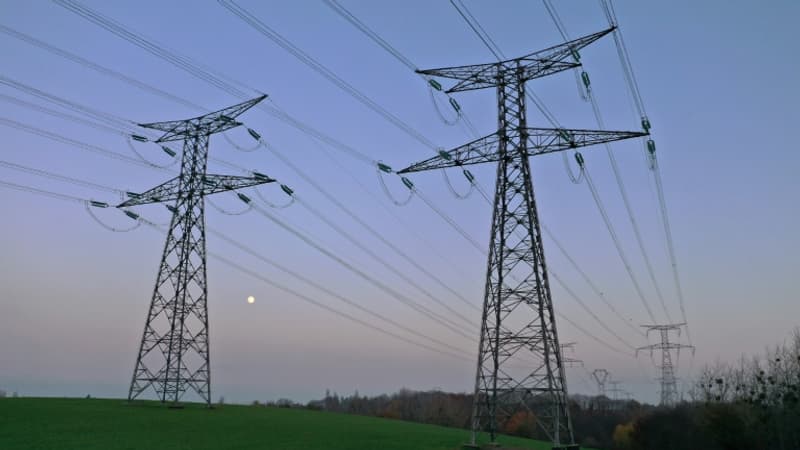The compromise on the reform of the European electricity market opens the way to public support for nuclear energy, but this French “victory” still does not resolve the thorny issue of the “control” of electricity prices desired by Emmanuel Macron. Following the increase in electricity prices in 2022, this reform aims to moderate the bills of households and companies thanks to long-term contracts that allow limiting the exposure of electricity prices to gas prices, the opposite of the actual situation.
The compromise reached on October 17, still to be validated by the European Parliament, should also offer more visibility to the investments of electricity producers by making “contracts for difference” (CFD) mandatory at a guaranteed price for any public support to investments in new carbon-free production facilities, both renewable and nuclear. The text also allows the optional use of these contracts for all investments in existing nuclear power plants, a point highly appreciated by Paris, which wants to expand its obsolete reactors. With this CFD mechanism, if market prices are below a reference price, the State pays compensation to electricity producers. On the contrary, if prices are higher, the State captures the additional income to possibly redistribute it among final consumers.
“It is urgent to give visibility” to the offer of post-Arenh industrialists
Paris and Berlin disagreed extensively over the conditions required to apply these CFDs to investments in existing power plants. Germany, emerging from the atom, feared that electricity would become more competitive for French industry thanks to massive public support. For Paris, this commitment would allow the future of electricity regulation in France to be considered while the current mechanism ends at the end of 2025. Emmanuel Macron also promised to “regain control” of prices, in the face of opposition that accuses him of letting the banknotes explode. .
The current mechanism (Arenh) forces the electrician EDF to resell part of its production to alternative competitors at the reduced price of 42 euros per MWh, which in fact benefits the bills of households and companies. However, for manufacturers who buy electricity in advance, “it was urgent to give visibility” to their supply once the mechanism was finalized, stressed Uniden, the union of energy-intensive industries, welcoming this European “result.”
Towards an electricity price of 80 euros per MWh
The truth is that the “victory” proclaimed by the Elysée does not solve everything: “now everything remains to be done: determining the price, the volumes, the philosophy of redistribution, the regulatory vehicles, the systems for manufacturers,” observes Nicolas Goldberg. energy expert at Colombus Consulting. At the center of the ministerial debates is a crucial issue: that of an electricity price that allows the industry to remain “competitive”, consumers to have sustainable bills and EDF, which must expand its power plants and build new ones. . to be “paid to maintain its financial stability”, summarizes the Ministry of Energy Transition.
This price is the subject of debate. Just two months ago, EDF’s CEO campaigned for a maximum price above 100 euros per megawatt hour, while market prices had risen to almost 150 euros. But since then, EDF has auctioned electricity sales contracts for 2027 and 2028, whose prices are around 80 euros. For the executive, it must be “close” to the “production cost” of the nuclear park, recently estimated at 60 euros per MWh (without the new reactors), well below that evaluated by EDF (75 euros), when RTE, the responsible for electric transportation, calculated it between 75 and 80 euros for all productions combined. 80 euros is also the price of the electricity that EDF plans to produce for its six future EPRs. Therefore, all economic agents converge towards this price level. Especially because the State, which has just nationalized EDF, wants to clean up the company’s accounts. It will provide 25 billion euros for the six future EPRs. Nor does it intend to finance them with losses.
Debate on the use of CFDs
In addition to the price, the very use of CFDs is debated. EDF fears that Brussels will impose compensation in the name of competition if a drop in prices generates excessive public support. However, CEO Luc Rémont refuses to see another “Hercules” relaunched, a former division of activities project. For the State, as a 100% shareholder, it is not about “undermining the structure of the group,” the ministry insists.
For months, EDF has been advocating the signing of long-term contracts with manufacturers that consume a lot of energy or with alternative competitors, a way to freely set its prices, like a “normal company” when it will have to invest 25 billion euros per year. But he is also in favor of a limit above which the State could recover its surplus income obtained in the markets if the latter get out of control. The government must carry out its “arbitration” in the “coming weeks.”
Source: BFM TV


